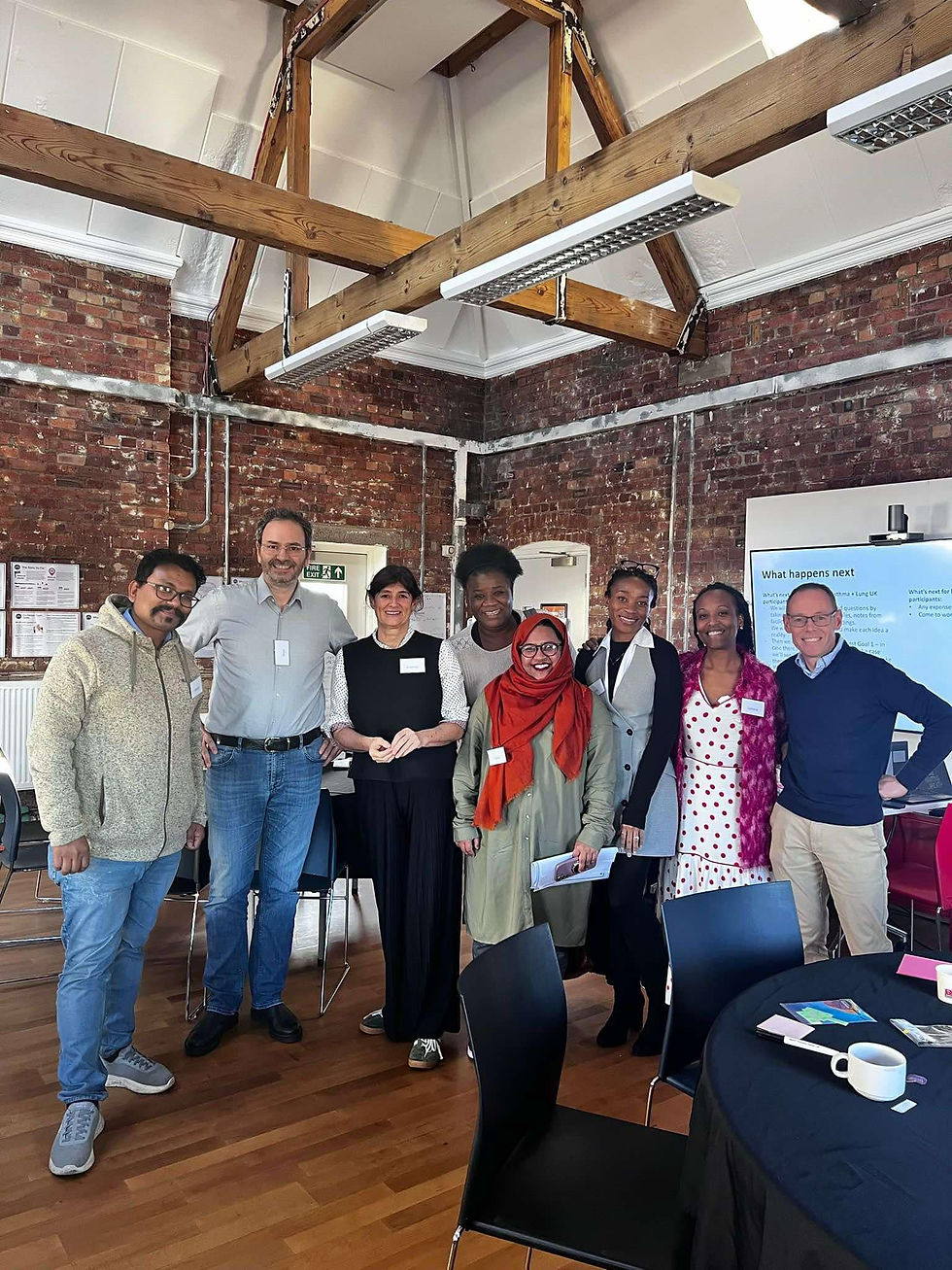Co-designing the UPTURN intervention: A Collaborative Leap Forward
- Co-design Team
- Feb 21, 2025
- 3 min read
Updated: Jul 10, 2025
On 26th November 2024, in the heart of London, the UPTURN team hosted the first of our co-design workshops to begin the development of the UPTURN intervention to support attendance at pulmonary rehabilitation (PR) for people living with Chronic Obstructive Pulmonary Disease (COPD). The day brought together a diverse group of participants, including COPD patients and their carers, representatives from Asthma + Lung UK, physiotherapists, specialist nurses, and researchers, all united by a common goal: to support people to access PR in ways that address key barriers and enhance accessibility, cultural relevance, and impact.
Building the Foundation
The first co-design workshop was more than just an event; it was the culmination of extensive research, planning, and collaboration. At the heart of this approach was UPTURN’s definition of co-design - bringing together lived experience and professional expertise to work in equal partnership to develop a defined service or product using a specified participatory design-led process.
This principle guided the workshop’s structure, ensuring that COPD patients and their carers played an active role alongside healthcare professionals in shaping interventions that were practical, inclusive, and culturally appropriate. In preparation for the event, the team meticulously refined objectives, developed participatory activities, and created an environment where all voices could contribute meaningfully.
The session began with warm refreshments and introductions, creating a welcoming atmosphere for dialogue. Participants reviewed key research findings, including logistical, cultural, and informational barriers to PR. This shared understanding set the stage for collaborative problem-solving.

Creative Energy in Action
The workshop’s first activity was a brainstorming session designed to generate innovative ideas. Participants at four themed tables addressed specific goals, such as increasing confidence in PR and removing practical and cultural obstacles. Armed with colourful sticky notes and open minds, attendees spent 40 minutes proposing ideas ranging from community-led promotion to tech-based solutions.
A dot-voting system was used to prioritise ideas. Green dots highlighted the top ideas, while blue dots indicated promising but secondary concepts. This process gave every participant a voice and surfaced a shortlist of actionable solutions.

Stories That Shape Solutions
The post-lunch storytelling session was the workshop's highlight. Participants were introduced to ‘personas, derived from our primary data collection and analysis of the literature. These personals representing diverse COPD patients, carers, and healthcare professionals. Each table explored how their shortlisted ideas could impact these characters’ journeys to accessing PR.
For example, Azra, a non-English-speaking patient, imagined receiving support from a bilingual community health worker who explained PR benefits in her language. Meanwhile, Abdul, facing stigma, gained confidence through peer-led testimonials and relatable PR materials. These narratives helped participants empathise with real-world challenges while testing the feasibility of their solutions.
Through this exercise, nuanced insights emerged. How can testimonials from community members be used to encourage others to attend PR? Would a supportive phone call help address fears and concerns? The rich discussion shaped our thoughts on how the UPTURN intervention can address these questions.
As we move forward, the insights gained from this session will be further explored and developed by Asthma & Lung, the UPTURN research team, and our community user testing groups before the next co-design session in Spring 2025.

Shared Reflections and What’s Next
This workshop exemplified the power and potential of co-design. By centering lived experience and drawing on multidisciplinary expertise, the team generated a wide range of practical ideas to inform the development of the UPTURN intervention. The enthusiasm, creativity, and shared commitment of everyone involved created a foundation for meaningful change.
As the day concluded, participants reflected on the workshop’s success and outlined the next steps. The ideas generated will be transformed into prototypes for testing before the next workshop, scheduled for April. The goal is to refine our ideas into an intervention that is inclusive, effective, and adaptable to diverse needs. Stay tuned as we continue our co-design journey!
Authors:
Dr MMG Rabbani
Dr Ada Achinanya
Dr Tahsin Tabassum
Lorraine Lawrence
Sara Langston
Dr James Ward
Dr Timos Kipouros
Dr Amanda Moore


